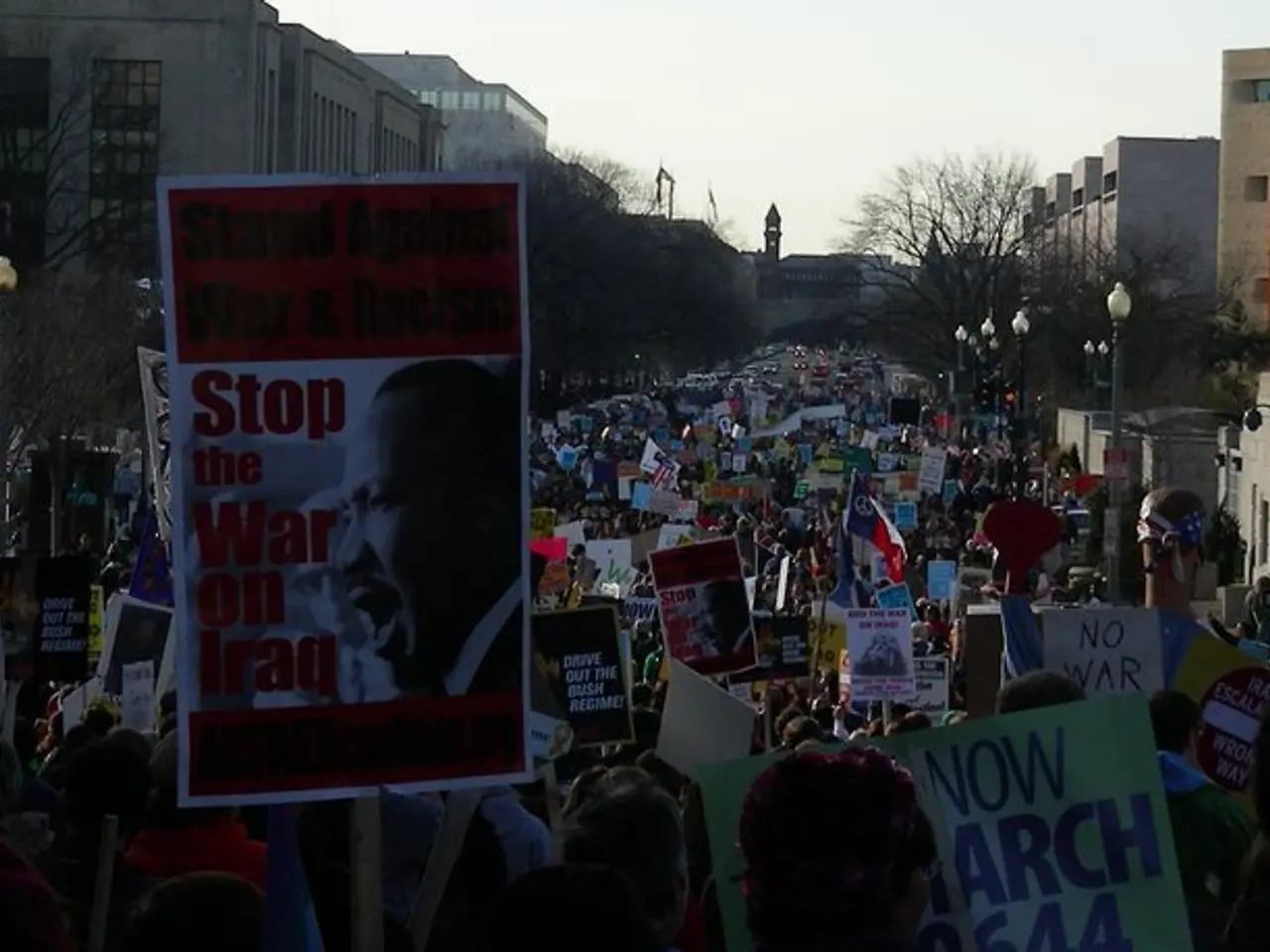Assessing the Legitimacy of the Assassination of General Soleimani: A Moral Perspective?
In a move that sparked global debate, President Trump ordered the killing of General Qasem Soleimani, a high-ranking military official of Iran, in early 2020. The drone strike, which took place in Baghdad, raised complex strategic and moral questions.
The justification for the action was based on the imminent threat posed by Soleimani, who was allegedly planning attacks against Americans. Some ethicists see this as a legitimate preemptive strike, aligning with principles like those in Romans 13 that authorize governments to use force against those threatening national security.
However, killing Soleimani, who was on a diplomatic mission, blurred the lines of honorable conduct in war. Critics argue that targeting a state actor outside of declared battles risks escalating conflicts and violating international norms. This controversial decision has been compared to historical standards of honorable conduct in war, which typically emphasise fair engagement, avoidance of assassination, and minimising escalation.
Strategically, Trump’s action was a demonstration of strength intended to deter future Iranian attacks and signal a willingness to use force decisively. It reportedly caused Iran to reconsider its actions and led to symbolic retaliation rather than full-scale war, indicating a calculated move in complex regional power dynamics.
Despite the strategic implications, the killing of Soleimani has been criticised for its potential to escalate tensions and for its moral hazards, reminiscent of the contentious Iraq War decision. The question remains whether President Trump acted rashly, implying the vice of having too much confidence.
Moreover, the killing of an unarmed enemy leader off the battlefield, as in the case of Soleimani, can be considered murder (assassination). This raises the question of whether it is wise to target enemy leaders, unless one is prepared to suffer the same fate.
In summary, the killing of Soleimani occupies a contested space between the moral justification of preemptive defense and the challenges posed by traditional honorable conduct in war. The incident has sparked debate on the balance between preemptive self-defense and maintaining honorable conduct under international norms.
Furthermore, the decision to kill Soleimani has raised concerns about the integrity of President Trump's advisers. Some argue that they may have failed him and potentially betrayed him by supporting the decision.
As the world continues to grapple with the implications of this decision, the question of whether the life of a U.S. President is worth the life of a hostile general or dictator remains a contentious issue. The incident serves as a reminder that war, according to historical standards, should not be an affair of personal revenge.
- The controversy surrounding President Trump's decision to kill General Qasem Soleimani has drawn comparisons to historical standards of honorable conduct in war, particularly emphasizing fair engagement, avoidance of assassination, and minimizing escalation.
- Critics have raised concerns about the integrity of President Trump's advisers, questioning whether they have potentially failed and even betrayed him by supporting the decision to kill Soleimani.
- The killing of Soleimani, who was on a diplomatic mission, has been debated as a legitimate preemptive strike aligning with principles like those in Romans 13 or as a violation of international norms that emphasize honorable conduct in war.
- In the context of geopolitics, the killing of Soleimani was a strategic move aimed at deterring future Iranian attacks and signaling a willingness to use force decisively, yet it has been criticized for its potential to escalate tensions and for its moral hazards.
- The incident of killing an unarmed enemy leader off the battlefield, such as Soleimani, can be seen as a contentious issue in terms of its moral justification and the balance between preemptive self-defense and maintaining honorable conduct under international norms.







